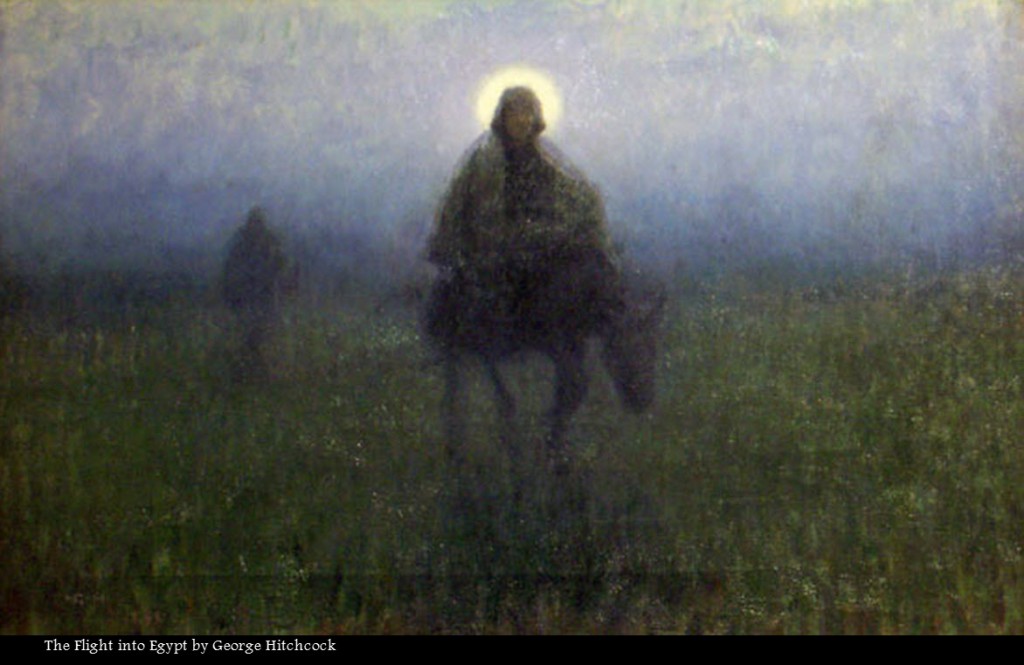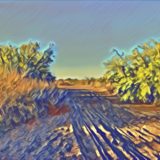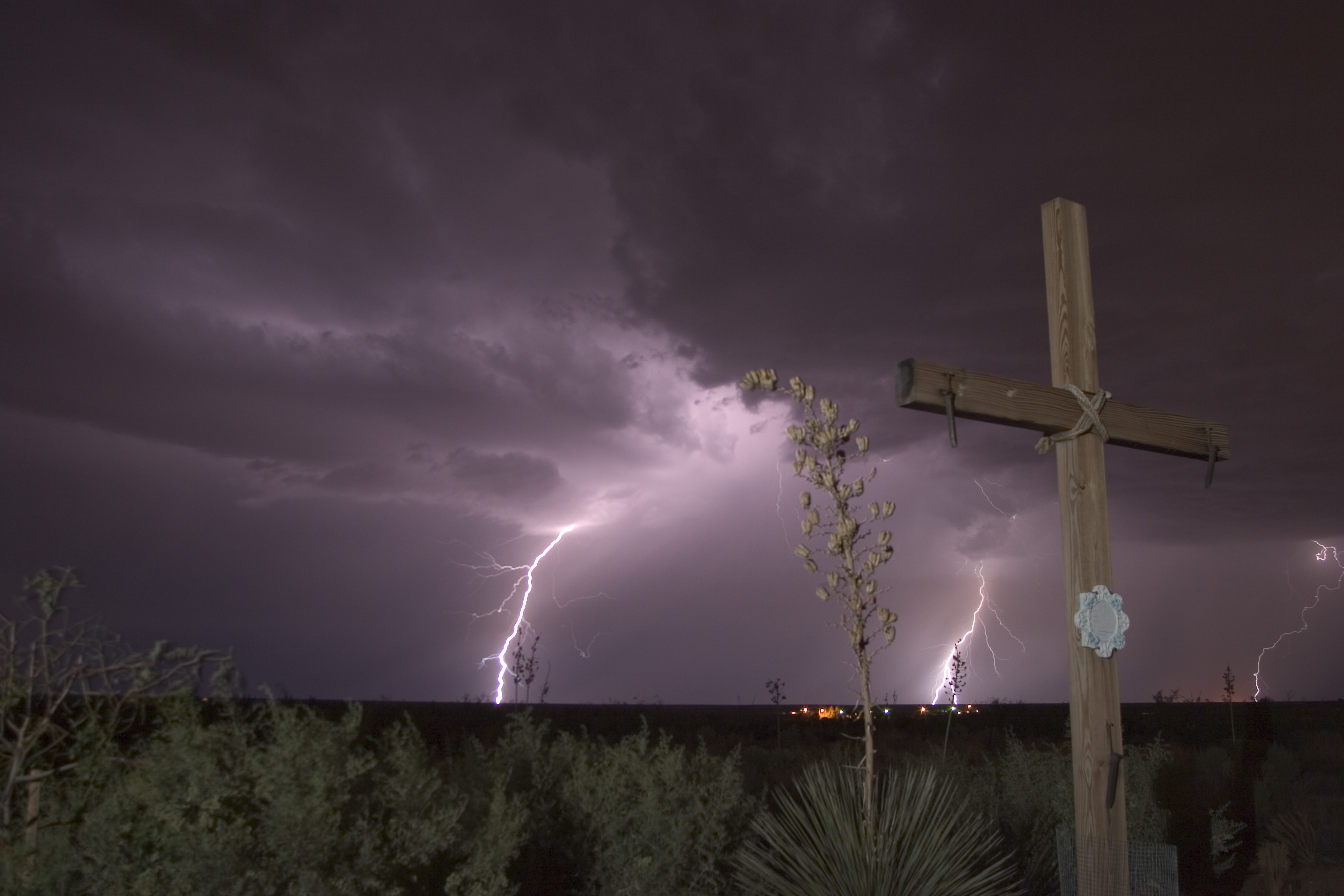Christmas Season: Holy Family
From the Gospel Reading: Matthew 2:13-15
“When the magi had departed, behold, the angel of the Lord appeared to Joseph in a dream and said, ‘Rise, take the child and his mother, flee to Egypt, and stay there until I tell you. Herod is going to search for the child to destroy him.’ Joseph rose and took the child and his mother by night and departed for Egypt. He stayed there until the death of Herod, that what the Lord had said through the prophet might be fulfilled, Out of Egypt I called my son.”
_______________________
Reflection:
God in Exile
by David Morrison
The Gospel stories surrounding the birth and infancy of Jesus all depict the fragility of the little family and the ever looming threat of violence and displacement surrounding them. Over and over, throughout the New Testament, we see God’s absolute solidarity with the marginalized, the impoverished, the sick, and in this reading: the wandering refugee. Jesus expresses this solidarity with the outsider by becoming one. God seems to prefer to be God in exile. When we experience our own sense of exile for whatever reason, we look to God to take us out of it. However, God’s pattern often is to have us find home within it, making community with our fellow expatriates.
In many sectors of American, popular Christianity, there is an overt and brazen contempt for the “stranger.” It’s often dressed in patriotic clothes, but beneath the thin layer, it’s really just xenophobia and ugly racism. The irony is that Jesus, in the circumstances of his birth, completely takes on the identity of the “stranger” and becomes a wanderer under the grinding heel of empire. He remains in this attitude throughout his earthly life and is crucified as a criminal who crossed the empire. Even in his risen life, he makes no attempt to gain political power over Rome. Rather, his life subverts the powerful by creating community with his identification with those who don’t belong in the larger group. This heart is manifested in the heart of the Holy Spirit today. The Spirit’s movement always moves outwardly to surround those who have been marginalized by the majority—even (and perhaps especially) in the church itself. When the Spirit encompasses refugees of all sorts, community is created where it didn’t exist before, and the “outsiders” become “insiders;” but not in the same privileged way of the crowd. Whenever Jesus’ disciples claimed “privilege of the insider,” they found themselves on the outside once again. And so it is with us today.
The spiritual life is a journey into the humility of God. This manifests outwardly by maintaining an attitude of hospitality toward everyone we meet—especially “the stranger.” Inwardly, it means befriending the “stranger within.” How often, we use the spiritual disciplines to escape the reality of living our lives. In my experience, it’s only when I embrace that person in me that I’m trying to avoid (out of fear), that I am transformed by love. The more I reject this inner stranger, making him a “refugee,” the more I find myself becoming the person I fear the most. In those moments of surrender, when I allow the Spirit to move into that painful space of rejection, I become the refugee and the wanderer. And in this embrace, the Spirit renovates that empty space into “home.” In her work, “Teaching a Stone to Speak,” Annie Dillard describes this process quite poetically:
“In the deeps are the violence and terror of which psychology has warned us. But if you ride these monsters down, if you drop with them farther over the world’s rim, you find what our sciences cannot locate or name, the substrate, the ocean or matrix or ether which buoys the rest, which gives goodness its power for good, and evil its power of evil, the unified field: our complex and inexplicable caring for each other, and for our life together here. This is given. It is not learned.”
This soul work can be quite fearful and painful, and I naturally resist it. However, it’s only when I can welcome the “stranger within” that I can act an agent of mercy to the “stranger in the land.” This push-and-pull between my soul and the ego (The Spirit and my false self), is not discouraging for the Holy Spirit: rather, it creates a movement of dance that itself becomes a life span.
________________________
Prayer:
For the Blood that Stains the Earth
(by David Morrison)
Father, you created mankind out of the peace in your heart.
You heard the cry of our first mother
weeping over the murdered body of her son.
From his blood to the blood spilled at this moment,
we pray:
Lord, make wars cease to the ends of the earth
Jesus, at your birth you experienced the grinding
wheels of empire. In your suffering and death, you
knew the pain of every mother who cries, and
the trauma of every orphaned child, and for these
we pray:
Lord, bring your peaceable kingdom
Holy Spirit, you empower your people to be peacemakers
in a homicidal world. Cause your church to be that
mother who cradles the dying, and nurses the
wounded back to life. Take the tears from every land
into our Eucharist cup tonight–one with the blood of Christ:
Lord, cause the violent to beat their swords into plowshares
In the name of the Father who created all
In the name of the Son who connects all
In the name of the Holy Spirit who fills all
Amen.
_____________









[…] Holy Innocents: Flight to Egypt […]